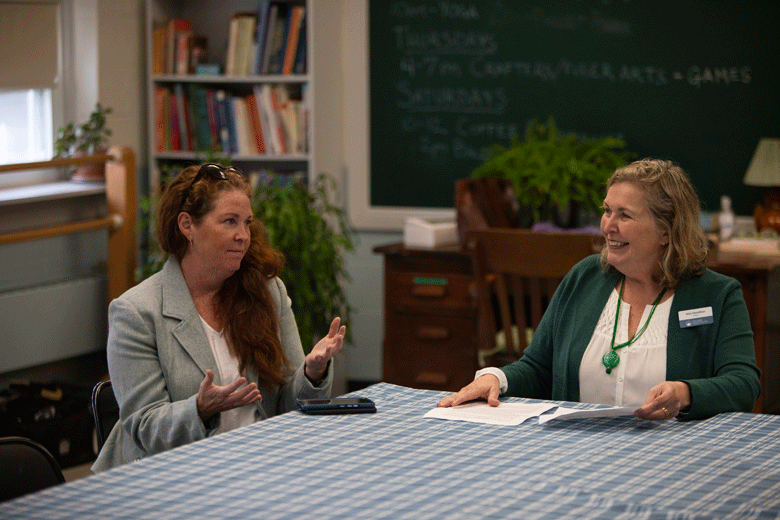Island Institute, a Rockland-based community development organization focused on island and coastal communities, has been awarded two key grants from the U.S. Department of Agriculture.
The nonprofit landed a Rural Community Development Initiative grant of $201,000 to support the Island Institute Fellows program. Island Institute Fellows in Brooklin, Tremont, and in Washington County are advancing community goals related to climate change planning, energy efficiency, and community wellness, thanks in part to this funding.
Island Institute also was awarded$86,988 for its work through its Tom Glenn Community Impact Fund which provides direct financial assistance to small businesses in Maine’s island and coastal communities. The Glenn Fund was established in 2012. The USDA grant will be added to the Fund’s loan portfolio.
“For nearly 25 years, the Island Institute Fellows program has provided critical service to Maine’s island and coastal communities,” said Kim Hamilton, Island Institute’s president. “More than 150 Fellows have had a lasting impact in the rural communities where they are working. USDA Rural Development’s support for this program is a welcome boost.”
To celebrate the award, a group of community members gathered at the Brooklin Town Hall, including Doug Hylan, head of Brooklin’s Climate Response Committee.
“Having Grace Carrier as a Fellow is already making a difference in our efforts to improve energy efficiency in our town,” said Hylan. “We are grateful to Island Institute and USDA Rural Development for making this happen.”
Island Institute matched the USDA grant, providing further leverage to help fund the Island Institute Fellows program, which spans the Maine coast and is also funded by individual donations, host communities, and private foundations.
“The trio of projects this grant will support represents the best of rural community collaboration in Maine,” said Rhiannon Hampson, USDA’s Maine state director.
“Small towns are just as committed to climate response and community resiliency as more urban areas, but often don’t have the staff necessary to realize their goals. Seeing this work in action shows how powerful the combination of diverse local volunteers, town leaders, nonprofits, businesses, and students can be with the added capacity of a Fellow.”
In 1999, the Institute established its Island Institute Fellows Program to place recent college graduates in Maine’s coastal and year-round island communities for two-year fellowships. Fellowships provide an opportunity to gain experience helping build sustainability within communities whose way of life face challenges.
The grant funding the Institute’s small business assistance work also impacts communities at the grassroots level.
“Small businesses along Maine’s coast are the heart of our communities,” Hamilton said. “They provide essential services and good jobs. These critical funds from USDA could not have come at a better time. They are an important expansion of the toolkit of services Island Institute provides to help small businesses thrive on the coast of Maine.”
For more than a decade, Island Institute has been a partner of USDA administering funds for a variety of business and community purposes, such as for aquaculture business expansion, clean energy installations, digital communications, and technical support in low-income communities.
“Support from Island Institute and USDA helped me start my aquaculture business and enabled me to power it with solar energy,” said Krista Tripp, owner of Aphrodite Oyster Company in South Thomaston. “This helps reduce my operating costs and reduces CO2 emissions, which is one of the best solutions for our changing climate.”
USDA recognizes the challenges facing coastal- and island-based small businesses, Hampson said. “Expanding access to ‘patient’ capital and technical assistance in a way that is community driven—that is the highest and best use of awards like the Rural Business Development Grant.”
Because loans are in a revolving fund, the benefit will continue, she added.
“These dollars will continue to circulate in Maine’s working waterfront and coastal communities creating a multiplier effect.”
Founded in 1983, Island Institute is celebrating its 40th year of working to sustain Maine’s island and coastal communities.





